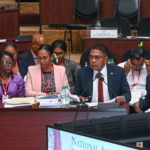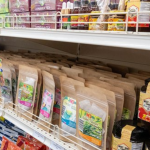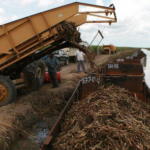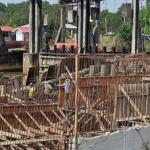The importance of effective management and control of chemicals was underscored by Agriculture Minister, Hon, Noel Holder while addressing the High-Level Segment of the 2017 triple Conferences of the Parties held under the theme, “A future detoxified: Sound management of chemicals and waste”.
With the adoption of the 2030 Agenda for Sustainable Development and the Sustainable Development Goals, the political momentum according to the Minister, for a detoxified planet has increased, and as such the window of opportunity must be seized.
“There can be no sustainable development without a commitment to a pollution-free planet, and this requires sound management of chemicals and waste. the sound management of chemicals and wastes is central to achieving the three dimensions of sustainable development, and should be dealt with as a priority, as well as, in a mutually supportive manner to achieve the 2030 goals,” the Minister reminded the delegation.

Agriculture Minister, Noel Holder is pictured seated in front of Registrar of PTCCB, Trecia David and Ambassador of Guyana to the United Nations Organization (Geneva), Dr. J.R. Deep Ford
In outlining Guyana’s strides in chemicals management, Minister Holder stated that for the momentum to be sustained by all parties involved, there must be a National Sustainable Development plan to guide the process.
“Institutional frameworks must be strengthened at all levels and policy coherence achieved across all sectors. This requires strong political will, cooperation across Ministries, as well as community and end-user awareness, including partnerships,” he said.
The need for specific targets which support the commitment for sound management of chemicals and wastes in order to protect human health and environment were also highlighted.
In addition, the delegation was reminded of partnerships at the service industry levels, to further prevent pollution of streams and water bodies on which communities depend, especially those in abject poverty.
“Different levels of development and differing capacities among countries to address the challenges of chemicals and wastes management must be recognized, particularly in small island developing states, least developed countries and other vulnerable populations who have limited capacity or access to information to deal with environmental challenges.” the Minister stated.
Adequate technology transfer is essential to address sustainable development in fields such as agriculture, recycling technologies, household and medical waste management, as well as training and capacity-building in chemicals and waste management throughout the lifecycle.
There is a large potential for recycling to have positive economic impacts in developing countries. This must be guided by strong regulatory frameworks and technical expertise to ensure that wastes destined for use as a resource do not have an impact on health and the environment. Concepts such as the circular economy and the green economy are models that provide opportunities for developing countries to reduce waste and pollution while enabling economic and social prosperity and that also requires behavioral and cultural adaptations.
Guyana will continue to benefit from the financial mechanism of the Conventions. Availability of and access to adequate financial resources remain fundamental according to the Agriculture Minister, to ensure the restoration of oceans and landscapes from chemical pollution and adequate implementation of the chemicals and wastes agenda within the framework of the Sustainable development goals.






